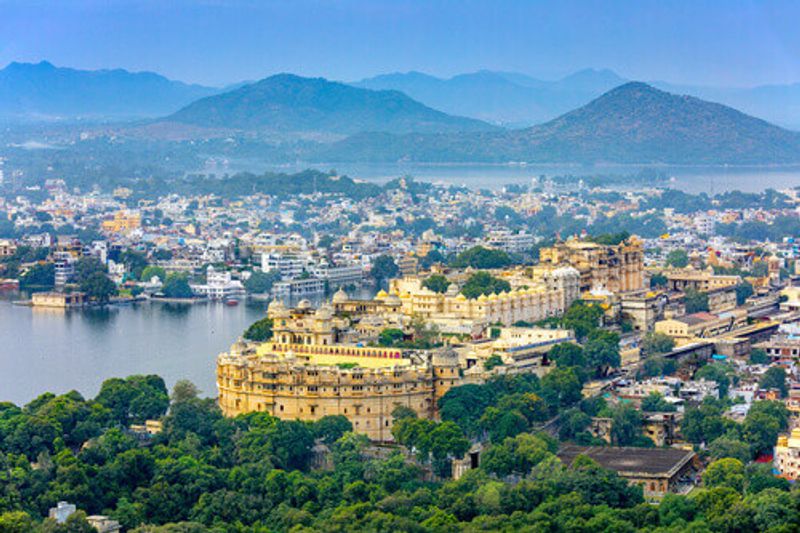Walk in the footsteps of forgotten maharajas, Mughal rulers and generations of pilgrims as you explore seven of northern India’s fascinating historical sites
The Hill Forts of Rajasthan
Established during the long reign of the Rajputs between the 5th and 18th centuries, Chittorgarh Fort, Amer Fort, Gagron Fort, Kumbhalgarh Fort, Jaisalmer Fort and Ranthambore Fort embody both military might and cultural sophistication. Together these six complexes spread across Rajasthan are recognised as a UNESCO World Heritage Site for Outstanding Universal Value, and each is spectacular in its own right. Grand Chittorgarh is one of India’s largest forts; Gagron commands a perch over the meeting of rivers; Amer effortlessly melds Hindu and Mughal aesthetics; Jaisalmer Fort looms above the desert; Kumbhalgarh preserves the genius of famed architect Rana Kumbha; and Ranthambore Fort rises out of forests prowled by tigers. A visit to any of these archaeological marvels will leave you in awe of Rajasthan’s Rajput rulers.
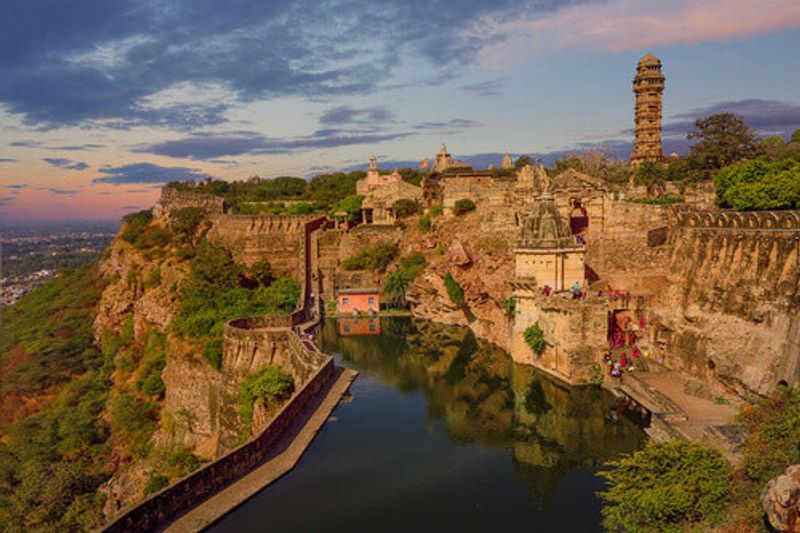
The Taj Mahal and ‘Baby Taj’
One of history’s most legendary romantic gestures, the tomb Shah Jahan built for his wife Mumtaz Mahal justifiably ranks among India’s greatest icons. The scale of the Taj Mahal can’t be fully appreciated until you stand underneath, gazing up at its pearlescent bulk against a hazy sky. But with the fame, comes the crowds. Encounter a lesser-known gem of Mughal architecture at Agra’s ‘other’ Taj. Built by the empress Nur Jahan to entomb her parents Mirza Ghiyas Beg and Asmat Begam, Itimad-ud-Daulah or the ‘Baby Taj’ was completed in 1628 just before work on the Taj Mahal began. These monuments have more in common than their elegant Indo-Persian design; Ghiyas Beg and Asmat Begam were Mumtaz Mahal’s grandparents. Linger to admire the details that gave Itimad-ud-Daulah its other nickname ‘the jewel box’ – intricate organic and geometric designs rendered with semi-precious stones inlaid into the marble.
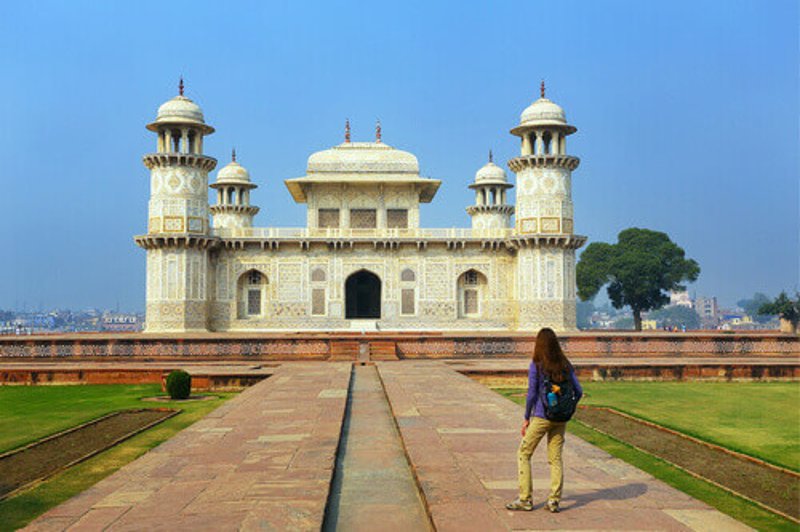
Chand Baori
Born out of necessity more than a thousand years ago, the Chand Baori is one of India’s finest stepwells. Called bawdi or baori in Rajasthan dialects, these feats of engineering tapped springs buried deep underground, providing both year-round water and a place of sanctuary on stifling days. Of India’s many forgotten stepwells, Chand Baori in the village of Abhaneri, near Jaipur, is the largest and deepest. Built between the 8th and 9th centuries under the Nikumbh rajputs, Chand Baori is flanked on three sides by 3,500 narrow steps descending 30m in absolute symmetry. On the fourth side is an ornately carved, tiered pavilion, where royalty once congregated to cool off. Although people no longer come to drink from the green pool of water now gathered at the bottom, Chand Baori is a marvel too often left off the tourist trail.
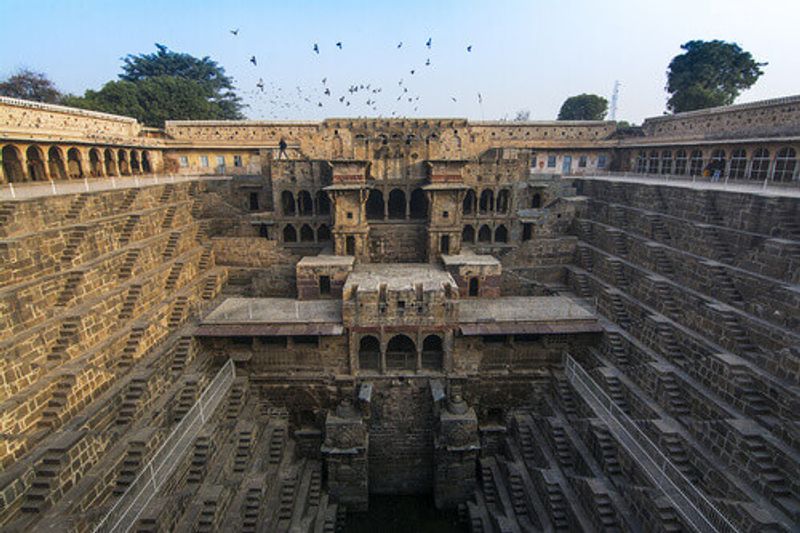
The temples of Khajuraho
This cluster of Hindu and Jain temples in Madhya Pradesh are notorious for the risqué carvings adorning their walls. But besides the erotic imagery (that in reality only make up a minority of the frescoes) are scenes of everyday life and complex patterns rendered in extraordinary detail. Around 80 temples were built between the 10th and 11th centuries by the Chandela Dynasty, of which around 20 survive clustered into three groupings. Many visitors don’t make it beyond the Western Group on Khajuraho’s main street, where the grand Kandariya Mahadeo, Lakshmana and Vishvanatha temples are found. However, it’s well worth taking an amble through rural farmland to visit the Southern and Eastern Groups, where you might share the ancient structures with no one but grazing animals and curious schoolchildren intent on practising their English.
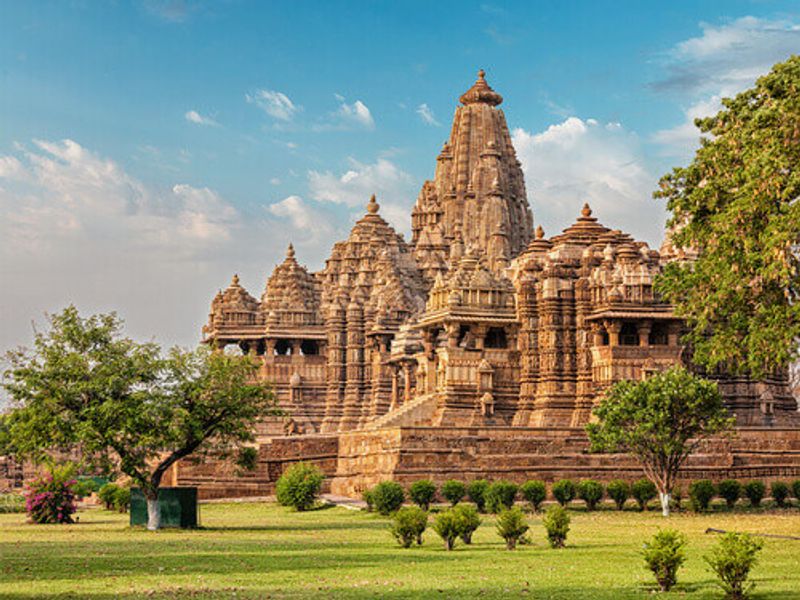
Pushkar Lake
It’s hard not to feel becalmed at Lake Pushkar. Hindu pilgrims flock to this Rajasthan desert village to cleanse in the glassy water, which is honoured as the Tirtha Raj (or king of pilgrimage sites). The artificial lake that exists today was first established in the 12th century, but references to the holy site are found in the 2000-year-old Hindu epics Mahābhārata and Ramayana. Pushkar is tied to the god Brahma, who is said to have created the lake with fallen lotus petals. Despite its popularity with pilgrims and tourists, the town is a tranquil spot, where cows wander narrow laneways and black-faced langur monkeys bask on the ghats and temples encircling the water. The normally sedate rhythms of the town change however during the annual Pushkar Camel Fair around October and November, when thousands of traders gather to show off extravagantly decorated dromedaries.
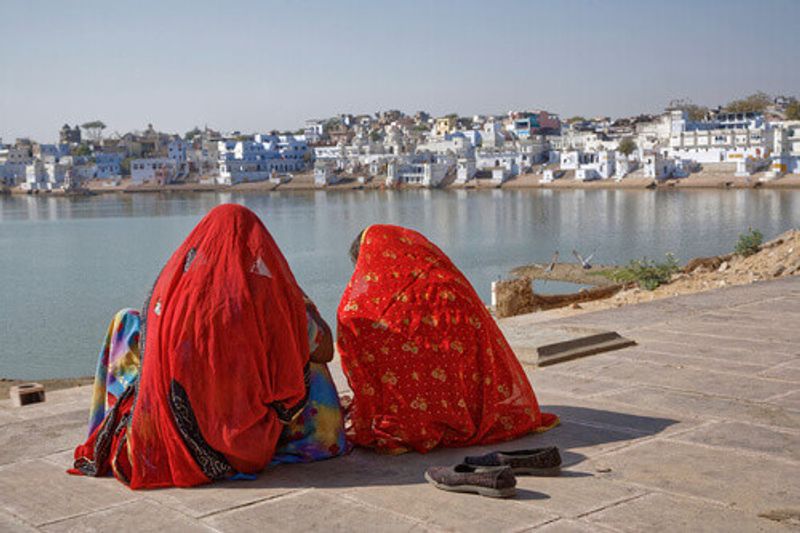
Amritsar Golden Temple
The Golden Temple (Harmandir Sahib) is the spiritual heart of Amritsar, the holiest of cities in the Sikh religion. The gleaming building sits in a lake called the Pool of Nectar, around which the entire Punjab town grew in the 1570s when the fourth Sikh guru Guru Ram Das settled on its banks. Today it calls millions of pilgrims from around the world, and indeed people from all backgrounds who come to marvel at one of India’s most hypnotic sights. The Sikh religion holds inclusivity at its core, and this permeates Harmandir Sahib. The main temple’s four entrances symbolise openness to those from all backgrounds and beliefs, and in the langar (kitchen) up to 100,000 people, a day sit side-by-side on the floor to share a free vegetarian meal prepared by an army of volunteers. Visit first in the daylight, to see the inner temple duplicated in the placid pool surrounding it, then again at night when the complex is brilliantly lit.
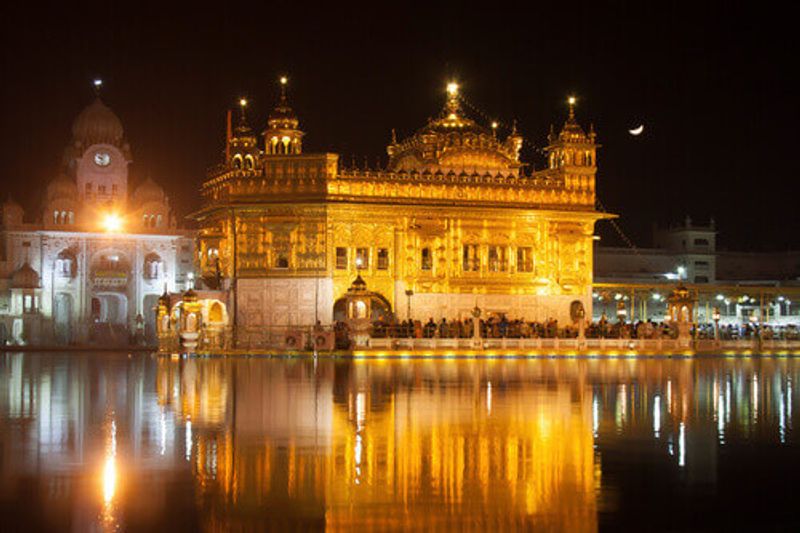
City Palace, Udaipur
Of all the romantic buildings dotting the ‘Venice of the East’ Udaipur, none is so commanding as the City Palace. The foundations were first laid in 1559, but added to in a whimsical jumble over the next four centuries by generations of the House of Mewar. Sitting pretty on the banks of Lake Pichola, the finished structure includes 11 distinct palaces and a network of gardens and courtyards representing a curious fusion of Rajasthani, Mughal, European and Chinese design. Take your time to explore the many different pockets of the sprawling grounds – from the technicoloured glass mosaics of the Mor Chowk (the peacock courtyard), to the opulent mirrored dome of Kanch ki Burj and the city views from the shaded garden courtyard of Badi Mahal. In every detail you can sense the grandeur of the dynasties that once ruled northern India.
